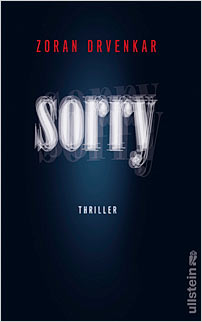review
Frauke, Tamara, Wolf and Kris have been friends since their schooldays. Growing up in Berlin without jobs or career, they are now living in a vacuum. Wolf is traumatised by the death of his drug addict lover Erin, Kris, his brother, has just lost his job and with it his dream of becoming a journalist, Tamara has been mentally damaged since giving away her unwanted baby daughter and her best friend Frauke’s mother has been admitted to a lunatic asylum.
Surely, as real a group of losers as one could reasonably hope not to find. Until, in the course of a reckless, drunken evening together, they come up with a brilliant idea: ‘Sorry’ – the agency that apologises on behalf of others. The idea is as simple as it is effective. ‘Sorry’ apologises on behalf of companies who mistreated their employees, or business people who have wronged others. An agent visits the injured party or person, offers an apology, often combined with financial or other compensation. Soon these former deadbeats are living in luxury in a beautiful old villa at the shore of Berlin’s Wannsee. But things can’t last, nor do they, and the spell is broken when Wolf, entering what he thinks is the flat of a certain Mrs Hannef to offer her an apology, finds a dead woman’s body tacked to a wall, its hands and head secured with long steel nails.
From then on follows a sequence of nightmare events impossible to do more than summarise. Frauke dies (accidently, strange to say, though not peacefully). Wolf is buried alive. Fanni and Karl both meet their ends at the hands of Samuel, the ageing leader of a group of paedophiles. Samuel himself is finally kidnapped by Tamara, who leaves him to suffocate in the boot of her car. Add to this an empty grave, tortures, and mistaken identities and you are still not quite there.
Gruesome though it is, this literary thriller addresses serious themes, most obviously the deep harm inflicted by sexual abuse. Born in Croatia, the author was brought up in the West Berlin alternative scene he now describes. Modern literary comparisons certainly come to mind, but surely what one is most obviously taken back to are the grisly horrors of the playwright John Webster.



All recommendations from Spring 2009